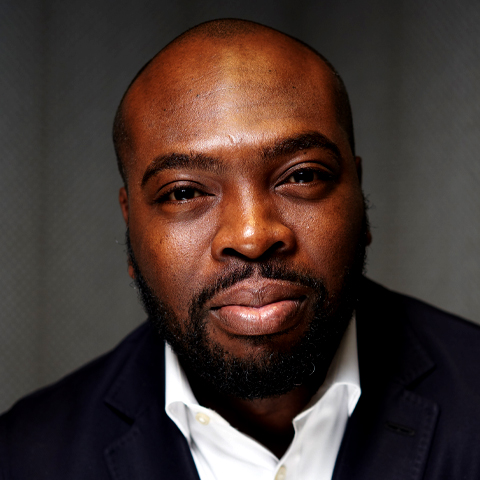Mic Drop: Resourcing the Long Arc of Trans Liberation
- Aldita Gallardo
Photo Credit: Chris Partin/Special to SFGATE
While the ubiquitous rainbow flags have been taken down, and the glittery, performative signs to index LGBTQ acceptance have been put away, the fight for trans and queer liberation continues. As a queer and trans person, our existence continues outside of corporate attempts to dilute the true spirit of Pride that is a necessary annual recognition of trans and queer rebellion against policing and the State. Philanthropy has the privilege, honor, and responsibility of building on this legacy to fund trans liberation efforts. This year alone, we have seen 550+ anti-LGBTQ legislation proposed–most of them specifically targeting trans, gender nonconforming, nonbinary, two-spirit people to exist safely and openly in public rooted in deep trans-misogyny.
The Right Continues to Fund for their Long-Term Vision
As the Right has consistently funded conservative groups for decades, funders committed to justice and liberation need to show up for trans communities and resource transgender, gender nonconforming, and intersex people for the long-term. The Right continues to out-fund and out-strategize the Left (as recently seen by the rollback of legal rights in abortion access and legal protections for LGBTQ people). In these critical times, we need less performative allyship and empty statements. Trans communities of color need us to fund them like we want them to thrive.
Mobilizing Progressive Philanthropy
Trans leaders need the spaciousness–many of us understand to be provided by sufficient resourcing–to be able to dream even bigger. As funders, we must understand, now is not the time to center our individual agendas; we cannot focus on single program areas, issues, and strategies, or tepid expansion of portfolios. The Right continues to fund for the long haul, and progressive philanthropy needs to expand our funding and our imagination. If we are working toward equity, we must be steadfast in resourcing trans leaders committed to, and creating long-term strategies for, trans people to live with self-determination and full autonomy.
Dangerous Anti-Trans Legislation
The attacks being faced by trans and queer folks nationally are not new: we have been framed as “groomers,” sexual deviants, unknowledgeable about what our own bodies need, and all to the benefit of conservatives to stir their base. This rampant transphobic and homophobic rhetoric has inflamed local state legislatures recently. In what feels like a kind of ahistorical boomerang, we are seeing the most vicious anti-trans bills in the South, in particular in states like Florida, Texas, and Arkansas. In 2021, Arkansas became the first state to ban gender-affirming care for trans minors when passing Act 626. Trans organizers and groups like InTRANSitive, a trans-led organization based in Little Rock, have been responding to State-sanctioned anti-trans legislation since then and, because of their organizing alongside legal advocacy, this law was overturned by a federal court. And while there is a myth that we live in a queer utopia, anti-trans violence exists here in the San Francisco Bay Area. On April 27, Banko Brown, an unhoused Black trans youth activist, was murdered by a Walgreens security guard. District Attorney Brooke Jenkins has refused to press charges and trans communities continue to rally to bring attention to this extrajudicial killing and exposing the “interlocking crises of housing, racism, and transphobia in America.”
Trans Leadership of Color to the Front
With outright transantagonistic State-legislated violence, an (in)justice system failing our communities, and the constant threat of physical violence just for existing, trans community leaders are building out our own organizations to provide the necessary support, leadership pipelines, and care networks for trans people in need. One of these groups is San Francisco-based Transgender Advocates for Justice and Accountability (TAJA) Coalition. In response to the brutal murder of Taja Gabrielle de Jesus, a transgender woman of color and resident of San Francisco, TAJA Coalition was founded in 2015 to attend to the needs of trans women of color. In recent years, they have deepened their work to provide housing subsidies to housing insecure trans people, created workforce development programs, offered case management and supportive services, and have continued to make space for healing and connection for the community.
In my five years with the Fund for Trans Generations resourcing these emerging, multi-strategy trans-led organizations, I can attest to the power and efficacy of one-stop-shop organizations. And in these times, funding these emerging groups feels more important than ever, especially as they strengthen their infrastructure. Akira Jackson, TAJA Coalition’s Executive Director, says that “foundations should trust Black trans leadership, as we grow our teams and figure out financial requirements, for example, so that we can drive our mission and be in control.” In response to the lack of leadership pipelines, Jackson also shared the importance of training and skilling up trans people taking on staff roles, which takes time and patience. “We are building this organization so that it lasts even after me. As we identify the missing pieces so that our folks can get what they need, we are not the problem.” As funders, we can not simply fund groups closest to societal problems. We must interrogate our assumptions about these groups' capacity to transform communities.
Building on the Legacy of Trans Liberation
As a queer, nonbinary translatina funder resourcing trans communities of color, this historicizing of trans/queer movement building is important to me so that we understand the lineage of organizing that has gotten us to this point–particularly in the face of witnessing increased facism; reignited book banning related to gender identity, sexuality, intersectionality, and critical race theory; medical violence related to trans gender affirming care; state departments and public health agencies policing and criminalizing our most vulnerable trans youth, parents, and medical providers. The context is complicated, to say the least. And, historically, we have never ceased to insist on our right to live and organize toward communal power.
On the east coast, trans and queer activists look to the Stonewall Rebellion of 1969 as a milestone moment in history: a pivotal story where trans women, drag queens, and homosexuals fought back against the outright bashing and criminalization of queerness by the NYPD. Here, on the west coast, the Compton’s Cafeteria Riots of 1966 in San Francisco’s Tenderloin neighborhood predates Stonewall. And more recently, The Transgender District – founded by three Black trans women in 2017, and originally named Compton’s Transgender Cultural District after “the first documented uprising of transgender and queer people in United States history”– established “the first legally recognized transgender district in the world.” This is only a single throughline. By understanding our broader history, we get to know about ourselves; we see reflected back to us centuries of endurance by trans communities of color, and tested strategies we can learn now and incorporate toward collective liberation.
Aldita Gallardo (she/they/ella) is a resource mobilizer, organizer, and philanthropic consultant based in Oakland, California, on unceded Ohlone Land. Currently, she serves as Program Officer for the Fund for Trans Generations, a donor collaborative at Borealis Philanthropy that resources trans-led organizations in the United States, and sits on the Board of Directors at Funders for LGBTQ Issues. You can learn more about her work on her website.




